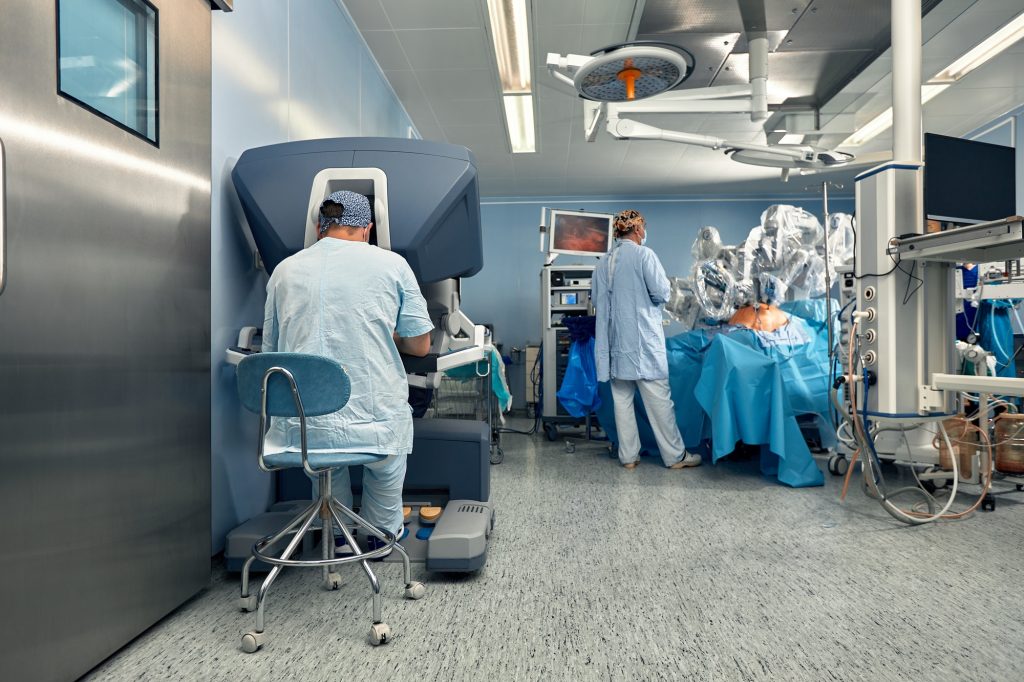Symptoms of Rectal Cancer
Rectal cancer may be asymptomatic in its early stages, but as it progresses, the most common symptoms include:
- Rectal bleeding, which may appear as bright red blood on the stool or toilet paper.
- Changes in bowel habits, alternating between diarrhea and constipation without an apparent cause.
- Pain or a feeling of pressure in the rectal area, especially during bowel movements.
- Unexplained weight loss, often accompanied by chronic fatigue.
- A sensation of incomplete evacuation, as if stool remains in the rectum.
- Thinner than normal stools, which may indicate a partial obstruction.
- Lower back pain, when the cancer has spread to nearby structures.
- Mucus in the stool, a less common symptom that may appear in more advanced cases.
If you experience any of these symptoms, it is essential to consult a specialist for a prompt and accurate diagnosis.
Diagnosis of Rectal Cancer in Moncloa-Aravaca
At Centro Pad, we have advanced technology to detect rectal cancer in its early stages and to plan the most appropriate treatment. The most commonly used tests include:
- Colonoscopy, which allows for visualization of the rectum and colon, collection of biopsies, and removal of suspicious polyps.
- Rectal biopsy, where a tissue sample is analyzed to confirm the presence of malignant cells.
- Magnetic Resonance Imaging (MRI) and Computed Tomography (CT scans) to evaluate the tumor’s extent and detect metastasis.
- Endorectal ultrasound, which helps determine the depth of the tumor within the rectal wall.
- Blood tests for tumor markers, such as carcinoembryonic antigen (CEA), to monitor the progression of the cancer.
- Stool DNA test, a less invasive method for detecting genetic alterations associated with colorectal cancer.

Robotic Surgery with the Da Vinci System
Robotic surgery is one of the most advanced options for rectal cancer resection. Its main advantages include:
- Greater surgical precision, reducing damage to surrounding tissues.
- Less postoperative pain and a faster recovery.
- Lower risk of complications, such as infections or bleeding.
- Preservation of important functions, such as anal sphincter control and urinary continence.
- Minimal scarring and improved aesthetic results.
- Shorter hospital stays, allowing for a more comfortable recovery at home.
Laparoscopic Surgery for Rectal Cancer
Laparoscopic surgery is another minimally invasive option that allows for tumor removal through small incisions. Its benefits include:
- Shorter hospital stay and quicker return to normal activities.
- Reduced postoperative pain and lower need for painkillers.
- Fewer complications compared to open surgery.
- Lower rate of postoperative infections.
TAMIS (Transanal Minimally Invasive Surgery)
TAMIS is an advanced and minimally invasive technique performed from within the rectal lumen. It is used to resect rectal lesions, including adenomas and certain early-stage cancers. Its main advantages include:
- Superior surgical precision, allowing for accurate tumor removal without abdominal surgery.
- Less postoperative pain and faster recovery compared to conventional procedures.
- Lower risk of complications, such as infection and bleeding.
- Preservation of sphincter function, avoiding the need for colostomy in selected cases.
- No abdominal incisions, which improves aesthetic outcomes and shortens hospital stay.
Other Complementary Treatments
- Radiotherapy, used to shrink the tumor before surgery or eliminate residual cancer cells.
- Chemotherapy, recommended in advanced cases to destroy malignant cells and prevent their spread.
- Immunotherapy and targeted therapies, which attack cancer cells without affecting healthy tissue.
- Gene therapy, currently under investigation to improve the immune system’s response to cancer.



